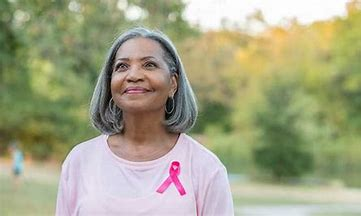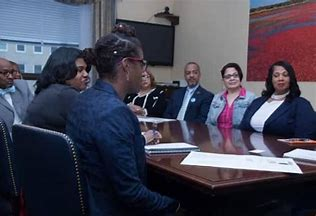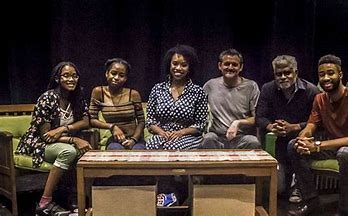Readings
Greetings! I am Aaron Redda a doctoral student in the College of Communication and Information Sciences at The University of Alabama. I have created this Diversity & Inclusion ePortfolio (D&I-eP) as part of my work for the CIS 650 (Applying Diversity Leadership Theories & Praxis) course during Spring 2025.In my D&I-eP, I analyze existing diversity and inclusion responses focused on cancer prevention among underserved populations through early screening and lifestyle interventions such as smoking cessation and alcohol reduction. This project was conducted in collaboration with Emlane Social, a health and wellness digital media company based in Tallahassee, Florida, committed to addressing health disparities impacting African American communities.
On this page, I present promising practices identified through a systematic review of contemporary scholarly literature and web-based resources related to cancer prevention and health equity in Black communities. I annotated key academic studies that highlight the importance of culturally tailored messaging, community engagement, and equitable access to screenings and care. Additionally, I evaluated authoritative online resources, including local and national initiatives, that address cancer disparities and promote inclusive health communication strategies. By synthesizing these insights, I aim to inform future interventions that Emlane Social and similar organizations can adopt to enhance outreach, empower underserved populations, and advance diversity, equity, and inclusion in health information practices.
The Breast Cancer and Environment Research Program (BCERP), funded by the National Institute of Environmental Health Sciences (NIEHS), developed educational materials to help mothers guide their daughters in reducing environmental breast cancer risks. Partnering with mommy bloggers and readers, researchers conducted 50 interviews to assess cultural relevance. Key findings emphasized diverse imagery, culturally specific risk information, family involvement, feasibility of behavior change, and visual content. Mothers faced intergenerational communication challenges due to openness, relational norms, and generational resistance. The study highlights the importance of family context and cultural tailoring in cancer risk education for effective message dissemination.


This study explores colorectal cancer (CRC) disparities among African Americans, who face higher CRC diagnosis and mortality rates due to lower screening adherence and later-stage diagnoses. To address this, researchers conducted seven focus groups with 42 African Americans from February to November 2020 to assess culturally tailored CRC educational materials for a future clinical trial. Key themes included knowledge, trusted cancer information sources, cultural health perspectives, and community insights. Participant feedback was incorporated into an educational brochure. The findings highlight the importance of community engagement in cancer prevention to improve health interventions and increase screening uptake.


The 2025 Cancer Statistics for African American and Black People report highlights the disproportionate burden of cancer in Black communities. An estimated 248,470 new cases and 73,240 deaths will occur among Black individuals in 2025. Despite progress in reducing cancer mortality disparities persist due to structural racism, socioeconomic inequalities, and limited healthcare access. Black people face higher mortality rates than White people for multiple cancers, including prostate, stomach, uterine, and colorectal cancers. The report emphasizes increasing diversity in clinical trials, enhancing provider education, and equitable healthcare access
Websites
University of Florida. (2025). Community-Partnered Cancer Disparities Research Collaborative (CDRC). Retrieved from University of Florida: https://cancer.ufl.edu/research/community-partnered-cancer-disparities-research-collaborative-cdrc/
The University of Florida’s (UF) Community-Partnered Cancer Disparities Research Collaborative (CDRC) website highlights community-based participatory research to reduce cancer disparities among Black individuals in low-income communities in Gainesville, Florida. The CDRC, a coalition of 10 Black churches, researchers, and cancer survivors, develops culturally relevant prevention and treatment interventions. The site features high-quality infographics, videos, and health equity resources, making it an engaging and informative platform. It also links to the CaRE2 Health Equity Center, a partnership between UF, FAMU, and USC, backed by the National Cancer Institute (NCI), enhancing research capacity and outreach efforts on cancer disparities. This is by far the most comprehensive website and serves as my local resource.
Centers for Disease Control and Prevention. (2025, February 13). Cancer and African American People. Retrieved from Centers for Disease Control and Prevention: https://www.cdc.gov/cancer/health-equity/african-american.html
The Centers for Disease Control and Prevention (CDC) website highlights cancer disparities among Black Americans, who experience higher cancer incidence and mortality rates. It outlines risk factors such as late-stage diagnoses, smoking, and lower HPV vaccination rates, emphasizing prevention through screenings, healthy lifestyles, and vaccinations. The site promotes health equity initiatives like Face Your Health and Project BAT (Black People Against Tobacco) to address these disparities. The website includes visual elements like pictures and links to further resources on health equity. Its content is authoritative and up to date, making it a valuable resource for understanding racial disparities in cancer outcomes.
American Cancer Society. (2025). Cancer Disparities in the Black Community. Retrieved from American Cancer Society: https://www.cancer.org/about-us/what-we-do/health-equity/cancer-disparities-in-the-black-community.html
The American Cancer Society (ACS) website provides extensive information on cancer disparities in the Black community, using text, images, and interactive components to engage users. It highlights higher cancer incidence and mortality rates among Black individuals and addresses barriers to prevention, treatment, and survival. The site incorporates infographics, community stories, and funding opportunities to promote health equity initiatives. ACS actively partners with organizations like the NFL, Pfizer, and the Robert Wood Johnson Foundation to improve access to screenings and treatment. Through policy advocacy, community engagement, and research funding, the website serves as a key resource for addressing systemic health disparities in cancer care.